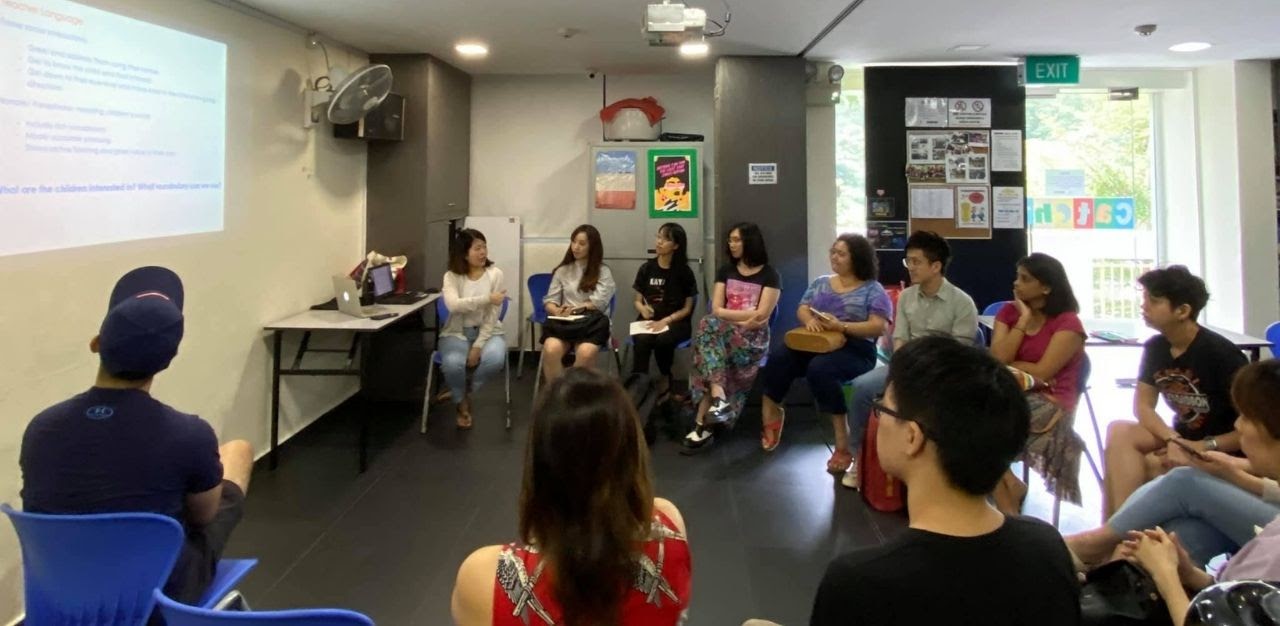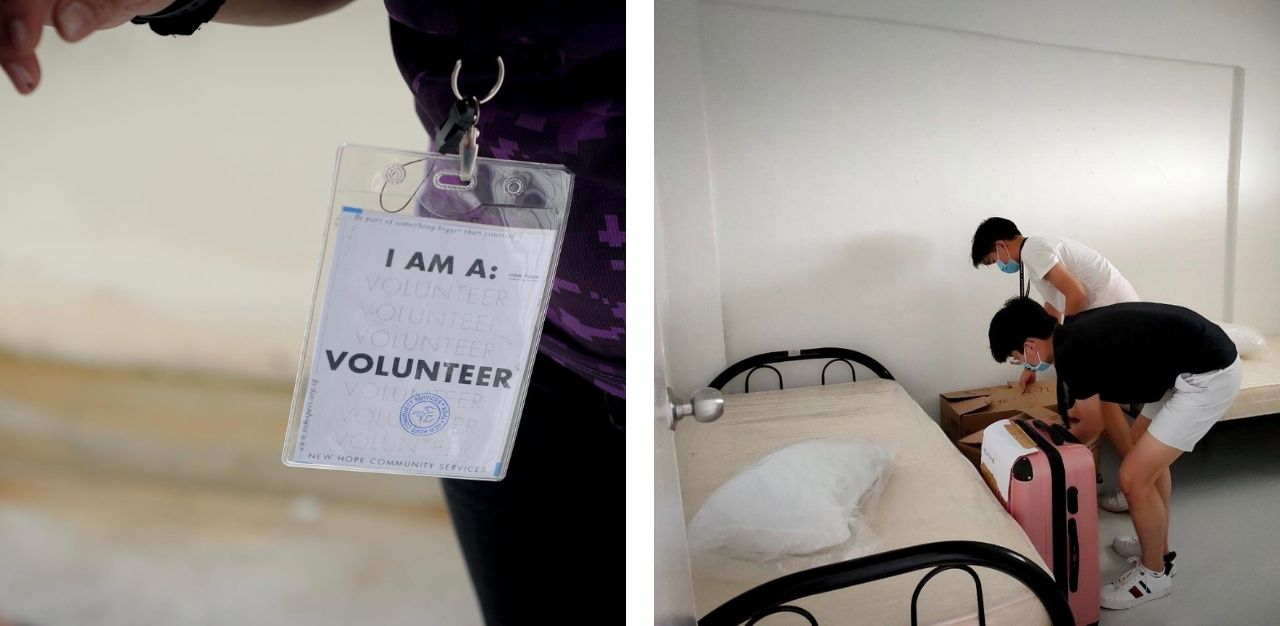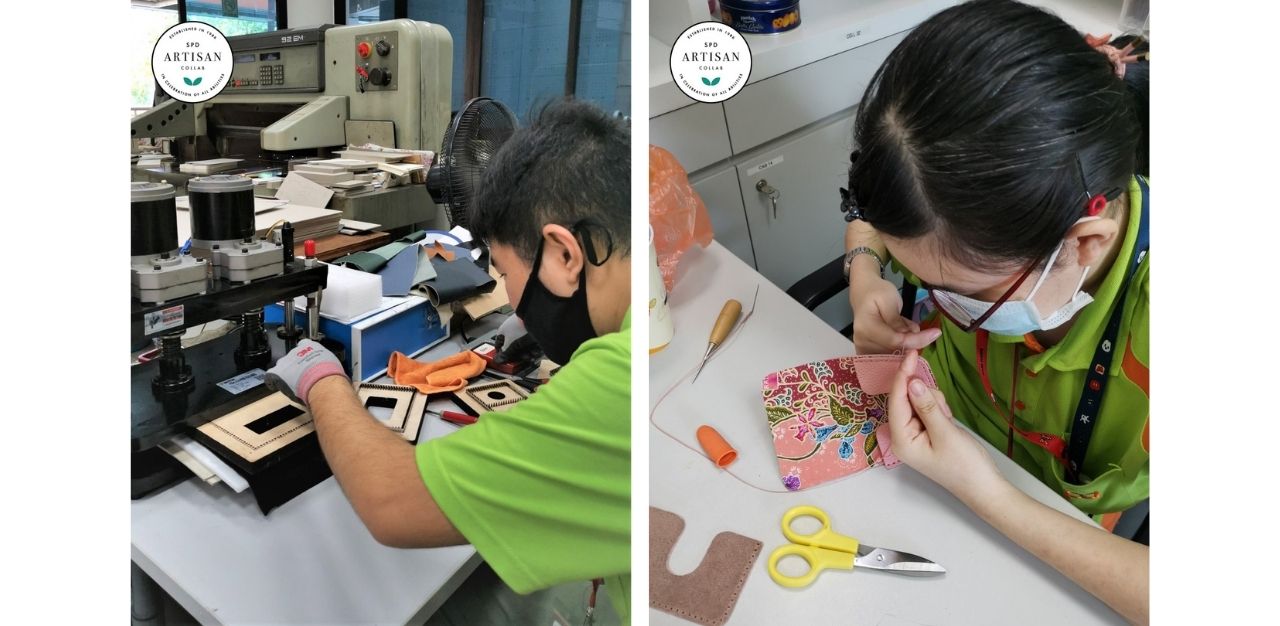When we saw dine-in restrictions clamp down on those upholding the life of Singapore’s food heritage and culture, residents mobilised to support local hawkers whose sales took a hit.
Whether through group buys, @SaveTheHawkersBot telegram bot, or @wheretodapao Instagram page drawing attention to digitally illiterate elderly hawkers, there has been an outpouring of support for local hawkers.
When the pandemic laid bare the severe overcrowding of migrant workers in dormitories last April, many hands were also drawn to help, whether through fundraising or initiatives such as TranslateForSG bridging communication barriers between migrant workers and healthcare staff.
Local hawkers and migrant workers are some communities that have been particularly visible during the rollercoaster ride of a pandemic. But there are many others who should not be overlooked too.
They are the elderly living alone, low-income families and children, the homeless and persons with disabilities (PWDs), amongst many other groups. However, many voluntary welfare organisations serving these communities are facing manpower crunches in a time when demand for services has increased.
Join Lion Befrienders, ReadAble, New Hope Community Services and SPD, among many other welfare organisations, in a step towards a more inclusive society.
Buddy up with lonely elderly
When befriending and home visits ceased at the height of the Covid-19 outbreak last April, social isolation amongst the elderly was never more urgent and real.
Covid-19 was not the only health threat for seniors. Mental health conditions turned out to be too. Last year, suicide cases in the age group above 60 years old recorded the largest increase of 26 per cent, the highest since 1991.
A working paper by Singapore Management University on the psychological well-being of older adults during the pandemic, found a significant dip in average life satisfaction amongst seniors during the circuit breaker period. Seniors who were living alone also experienced greater social isolation and lower life satisfaction than elders who resided with someone else.
In 2020, the number of seniors aged above 65 years old living alone stood at 63,000, and married couples without children stood at 89,000. With a greying population and longer life expectancy, the number of seniors finding themselves with fewer others to depend on in their social circle will only increase.
Social isolation is not a voluntary outcome anyone wishes for, but the result of shrinking social circles from the loss of family and mobility issues with age. You can be the one to spend time with older adults at risk of isolation to age with dignity in their golden years.
How? Buddy up with seniors at risk of social isolation in the community, or provide a homely amiable space at senior activity centres (SAC). Find opportunities abound with Lion Befrienders, who told ChannelNewsAsia that they are lacking and looking for regular volunteers committed for at least six months. Befrienders have to be at least 18 years old and able to commit weekly home visits for the long-term, in order to earn trust and build relationships with older adults.

Be the catalyst breaking the poverty cycle for low-income children and families
We heard many instances of pay cuts, no-pay leave and record high unemployment rate during the pandemic. Particularly for low-income families, the pandemic has been financially devastating.
Between April and September 2020, Beyond Social Services saw the median household income of applicants to their Covid-19 Family Assistance Fund decline from S$1,600 to S$500 (US$1,178 to US$368), and household incomes drop to zero for 35 per cent of applicants.
Material aid ranging from money, food packages to laptops for home-based learning were quickly distributed during the pandemic. As essential as these items are to tide through present challenges, it is equally vital for low-income families to be able to emerge from chronic financial precarity.
Education is one way of opening up better occupational prospects. However, children from low-income backgrounds are found to have high failing rates for primary school subjects.
Care about youths of the next generation and closing the gap between haves and have-nots?

ReadAble is one voluntary organisation dedicated to the cause of empowerment through education, where you can help. Through weekly reading and language art classes, ReadAble supports children and youth living in the Chin Swee area, as well as migrant mothers who speak English as a second language in building and strengthening literacy. They are currently looking for volunteer teachers with experience in early childhood education, volunteers to support organisation operations, and more. Note that volunteers are required to commit for a minimum of six months, and ground experience is required for some roles.
Rebuild life with the homeless
When the pandemic unfolded last year, the surge in demand for shelters, including Malaysians stranded here without residence following Malaysia’s Movement Control Order, last March, pushed rough sleeping into the limelight.
Prior to the pandemic, the first measure of the extent of street rough sleeping in 2019 revealed as many as 1,000 homeless persons living in our midst, all around Singapore. Homelessness is often a chronic issue lasting for years, and many rough sleepers do not easily fit the stereotypes.
Many are in fact employed but low wages make for unaffordable housing. Other key reasons for homelessness include family disputes and health issues. While the landmark study found the majority of homeless people to be older Chinese men, younger folks and families struggling with homelessness exist too.
How can you help? By leading activities on life skills such as financial planning and goal setting, or simply lending a listening ear, find yourself in a position to give hope to homeless families, youths at risk and ex-offenders temporarily sheltered by New Hope Community Services (NCHS). NCHS is also fundraising for Gift a Meal of New Hope, an initiative providing free meals to shelter residents. A S$10 donation is enough to solve a days’ worth of food, or three meals for one shelter resident!

Unsure of how to help persons in your neighbourhood you suspect to be homeless? Here are tips from Homeless Hearts of Singapore, who are also offering volunteer opportunities in various roles from befriending, recce missions, media advocacy to sheltering.
Build an inclusive society for persons with disabilities
For this year’s President’s Challenge, President Halimah Yacob laid emphasis on empowering persons with disabilities (PWDs), urging for the employment of PWDs to be regarded as a “national issue” rather than as the purview of welfare organisations.
While approximately three per cent of the resident population has some form of disability, PWDs made up just 0.55 per cent of the resident labour force in 2016.
Writing to the Straits Times Forum, Reena Rajasvari who is blind delineated how PWDs are facing greater challenges than before due to Covid-19. Difficulties finding jobs and making a decent living, which are long-standing concerns since before the pandemic, has only been aggravated post-Covid-19. PWDs are unable to benefit from upskilling courses funded by SkillsFuture, as most are geared towards those without disabilities..
While businesses hold the key to inclusive hiring practices, we can do our part through advocacy, as well as contributing to welfare organisations serving PWDs.
SPD, serving people with physical, sensory and learning disabilities, not only offers early intervention programmes for the young. SPD also offers employment support and training for adults. Through admin support, befriending, event support and more, there are many ways you can get involved with SPD. A detailed list of volunteer help currently needed can be found here.

The Singapore Association for the Deaf (SADeaf) also supports the Deaf and Hard-of-Hearing in their road to employment, by placing them with deaf-friendly employers and supporting their initial phase of employment. Regardless of your hearing ability, there is a place for you in their volunteer groups, such as in organising events with the SADeaf Igniters programme. SADeaf is also looking for volunteers to help out with administration, events support and fundraising efforts amongst others. Finance remains the biggest challenge SADeaf faces, so join their fundraising efforts, or donate some yourself!
With the return to Phase 2 (Heightened Alert) restrictions this week, remember to check in with the organisations listed above for updated details on how you can help, to avoid disappointment! For a more inclusive society, keep a lookout for communities in need.
Join the conversations on TheHomeGround Asia’s Facebook and Instagram, and get the latest updates via Telegram.




























